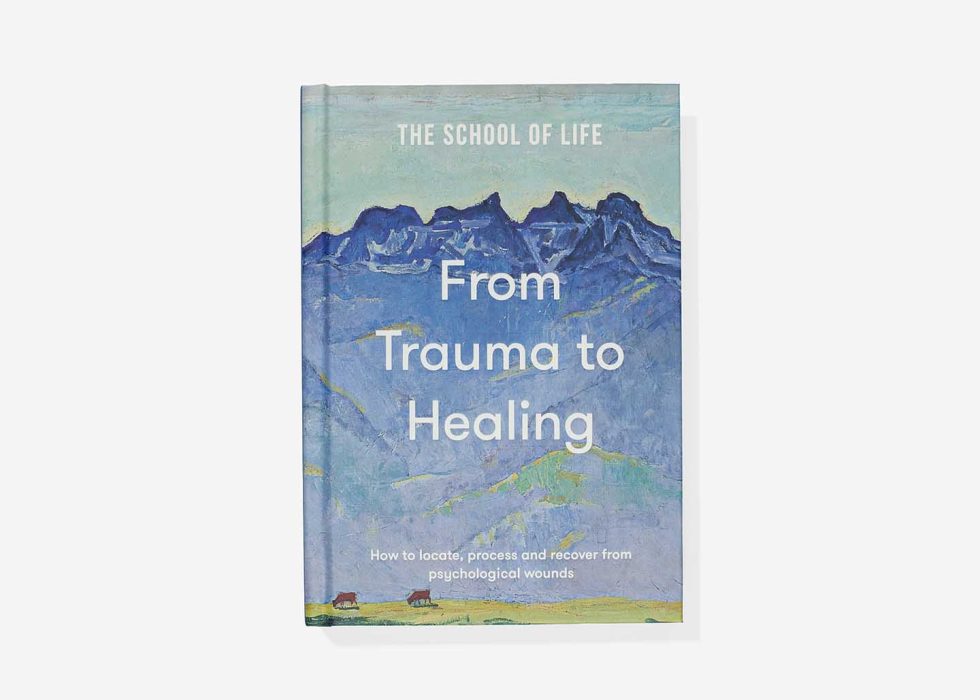Self-Knowledge • Fear & Insecurity
On Self-Sabotage
It’s normal to expect that we will always – almost by nature – actively seek out our own happiness, especially in two big areas of potential satisfaction, relationships and careers.
It’s therefore odd and not a little unnerving to find how often many of us act as if we were deliberately out to ruin our chances of getting what we’re on the surface convinced we’re after. When going on dates with candidates we are keen on, we may suddenly lapse into unnecessarily opinionated and antagonistic behaviour. Or when we are in a relationship with someone we love, we may drive them to distraction through repeated unwarranted accusations and angry explosions – as if we were somehow willing to bring on the sad day when, exhausted and frustrated, the beloved would be forced to walk away, still sympathetic but unable to take our elevated degree of suspicion and drama.
Similarly, we might be led to destroy our chances of a major promotion at work when, just after giving a particularly convincing presentation to the board, we grow bizarrely strident with the CEO or become drunk and insulting at a crucial client dinner.
Such behaviour can’t be put down to mere bad luck. It deserves a stronger, more intentional term: self-sabotage. We are familiar enough with the fear of failure, but it appears that success can sometimes bring about as many anxieties – which may ultimately culminate in a desire to scupper our chances in a bid to restore our peace of mind.

What could possibly explain this suspicion of success? In certain cases, an unconscious desire to protect those who love us, particularly those who cared for us in childhood, from a sense of envy and inadequacy that might be triggered by our gains. The beautiful new partner or the promotion to a senior role may prove silently devastating to those around us, prompting them to wonder about how little they have achieved by comparison and to fear that they will be deemed no longer good enough to merit our company.
It can feel odd to accept that those who loved us as children could harbour envious feelings towards us – especially when they might in most other ways be highly devoted to us. Yet these caregivers may nevertheless be carrying a private layer of regret within them about the course of their own lives and attendant fears of being neglected and thought unimportant by others, even their own children. As we were growing up, there might have been telling reminders about not getting too big for one’s boots and not forgetting where one came from, disguised pleas not to be forgotten and overlooked. We can end up in a bind: the success we long for threatens to hurt the feelings of those we love.

The solution, once we discover the impasse, is not to sabotage ourselves; it is to grow deeply generous and proactive around the real reasons why our caregivers could have ended up feeling so apprehensive about our achievements. We should recognise that these caregivers are not, ultimately, afraid of our success so much as they are afraid of being abandoned and reminded of their own inadequacies. The task isn’t therefore to ruin our chances, it is to try – when we can manage it – to reassure our nervous companions of our essential loyalty and of their primordial value.
A second common type of self-saboteur is one who finds the price of hope too high to pay for. We may, when we were younger, have been exposed to exceptionally brutal disappointments at a time when we were too fragile to withstand them. Perhaps we hoped our parents would stay together and they didn’t. Or we hoped our father would eventually come back from another country and he stayed. Perhaps we dared to love someone and, after a few weeks of happiness, they swiftly and oddly changed their attitude and mocked us in front of our peers. Somewhere in our characters, a deep association has been forged between hope and danger – along with a corresponding preference to live quietly with disappointment, rather than more freely with hope.

The solution is to remind ourselves that we can, despite our fears, survive the loss of hope. We are no longer those who suffered the disappointments responsible for our present timidity. The conditions which forged our caution are no longer those of adult reality. The unconscious mind may, as is its wont, be reading the present through the lenses of decades ago, but what we fear will happen has – in truth – already happened; we are projecting into the future a catastrophe that belongs to a past we have not had the chance to fathom and mourn adequately.
Furthermore, what fundamentally distinguishes adulthood from childhood is that the adult has access to a great many more sources of hope than the child. We can survive a letdown here or there, because we no longer inhabit a closed province, bounded by the family, the neighbourhood and the school. We can use the whole world as an orchard in which to nurture a diversity of hopes that will always outstrip the inevitable, yet only ever occasional and survivable, crushing disappointment.
Lastly, we may destroy success from touching modesty: from the sense that we surely cannot really deserve the bounty we have received. We may turn to consider our new job or lover in the light of all the sides of ourselves that we know to be less than perfect – our laziness, cowardice, stupidity and immaturity – and conclude that there must have been a mistake and that we must therefore return our gifts to the more deserving. But this is kindly, though balefully, to misunderstand the way success and pain are allotted. The universe does not distribute its gifts and its horrors with divinely accurate knowledge of the good and bad within each of us. Most of what we win is not quite deserved and most of what we suffer isn’t either. Cancer wards aren’t filled with the exceptionally wicked.

When we feel oppressed by a sense of not meriting our favours, we need only remind ourselves that we will soon enough not deserve our maledictions either. Our diseases, public falls from grace and romantic abandonments will in time be as undeserved as our beauty, elevations and loving partners might now be. We should not worry so much about the latter, nor complain quite so bitterly about the former. We should accept from the start, with good grace and dark premonition, the sheer randomness and amorality of fate.
It can be useful to keep the concept of self-sabotage in mind when interpreting our and others’ odder antics. We should start to get suspicious when we catch ourselves pulling off erratic performances around people we deep down really like or need to impress.
Furthermore, faced with certain kinds of viciousness and unreliability in others, we should dare to imagine that things are perhaps not quite as they seem; we might have on our hands not a malevolent opponent, but an almost touchingly wounded self-saboteur – who chiefly deserves a little patience and should gently be coaxed out of doing themselves further harm.
We should come to terms with, and help others to see, just how hard and unnerving it can sometimes be to get close to some of the things we truly want.




























